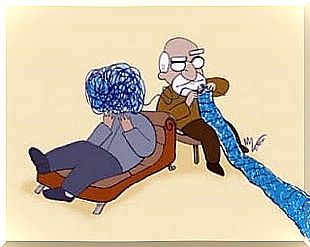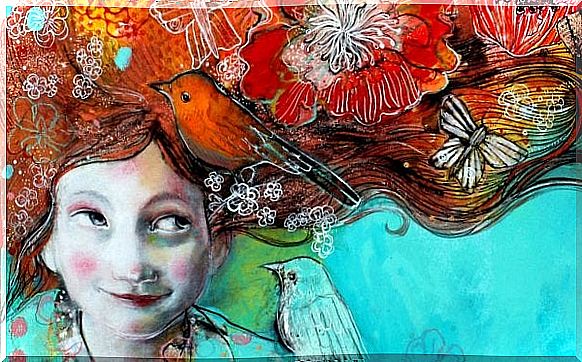Seeing A Psychologist Doesn’t Make You Crazy

‘ I’m going to a psychologist, and I’m not crazy’. By the way, ‘ crazy ‘ is a stigmatizing label that should never be used to refer to people with mental problems. I go to a psychologist to be helped with changing my inner light bulb when it seems to have gone out, or blown out.
I consult a psychologist because I want to learn to better deal with my thoughts and emotions, and with life in general. I go because it makes me feel good, because it helps me tap into those inner resources needed to face my existence, affirm it, and find greater happiness.
I know the sound of spontaneously falling stumbling blocks, throwing themselves right at my feet, blocking my path and progress. I know how futility burns in our souls, when your deepest feelings cannot be captured in words, when compulsive doomsday thoughts – that everything will go wrong – won’t be silenced, and you have no ‘exit’, no way back that will put you back on the correct or direct route of life.
The above could be said by, or by, someone—perhaps even everyone—who is in therapy. Regardless of the underlying and underlying reasons for taking therapy, there is nothing wrong with that at all. On the contrary, it takes a lot of courage to take the step, to entrust your most intimate ‘entanglements’ and worries to a professional, and let him or her help you.

The stigma surrounding mental health
Being in therapy is often viewed negatively or as a sign of weakness. In fact: it seems as if you are socially pointed at with an accusing finger when you take a therapist in the hand. However, as many doctors rightly point out: you don’t have to have uterine cancer to see a gynaecologist. Why – from this point of view – does not everyone who feels bad (ie: stressed, oppressed, anxious) go to the psychologist?
Perhaps because solving your problems isn’t as easy as swallowing a few pills, even though we live in a society of superficial symptom management, obsessed with pleasure and happiness from a bottle. Perhaps because we systematically underestimate the importance of psychological purification: by staying with the indescribable, initially inexplicable pain, we get to know and understand ourselves better – from the inside – and sooner or later also liberate.
The point is that we – normally – pay too little attention to our psychological issues. Emotional difficulties are usually not taken seriously enough, avoided, or repressed. We rarely give ourselves the chance to look at them up close – as if that would necessarily imply that we don’t have things ‘in order’ (anymore).
We are perplexed when the wound proves difficult to heal, and we don’t realize at that moment – when it is actually almost too late – that if we had listened to the ominous (physiological) signals earlier, the pain (and inflammation) would last for a long time. wouldn’t have gotten so bad.

You have to be very brave, to fearlessly endure, and acknowledge, to yourself, that stab in your stomach, the subcutaneous tension of your emotions. It requires, and shows, guts to reveal your mind, your feelings, your subjective world of experience, to a professional. Just having the courage to admit, both internally and externally, that you need to change something is a sign of moral strength.
Collecting enough inner courage to (want to) work on yourself is an admirable psychological achievement in itself, and a first step. Discovering this at all also provides you with the opportunity to temper your mentally projected expectations accordingly, and especially to rely on your integral presence in the here and now.
For the crux of making progress often lies in formulating, and remembering, the right introspective questions. A psychologist can support you in (together) drawing up optimal identification, internalization and recovery strategies. People who go to therapy do not always have a disorder or diagnosis , and psychology is not simply a matter of ‘common sense’.

What you can – potentially – achieve with the help of therapy goes far beyond an everyday listening ear. And it is more than an intimate conversation with a close friend. It involves changing, or renewing, your inner light bulb , based on a balanced and objective framework, or perspective.
After all, the knowledge of and the techniques used by psychologists in their practice are based on extensive scientific research, which underlies the therapeutic process as such. That is the intrinsic value of psychology: professional support in the search for answers, in formulating questions ; in exploring thoughts, emotions, and (negative or destructive) patterns of action and reaction. For those who dare, the path of psychology, and therapy, is therefore a wonderful opportunity to balance yourself, and your life, again, or more.









